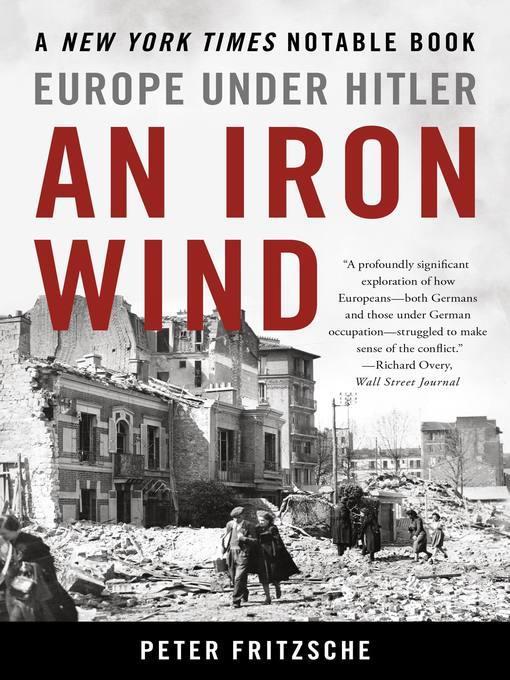
An Iron Wind
Europe Under Hitler
کتاب های مرتبط
- اطلاعات
- نقد و بررسی
- دیدگاه کاربران
نقد و بررسی

Witnesses to the Nazi war machine experienced "illusion, hope, anguish, and indifference."In this startlingly illuminating history, Fritzsche (History/Univ. of Illinois; Life and Death in the Third Reich, 2008, etc.) draws on copious diaries, letters, and memoirs to convey the texture of everyday life for French, Polish, and Swiss citizens during World War II. As late as September 1939, the author discovered, Europeans deeply feared another war; many felt willing to accommodate the Third Reich, "not least because they imagined ordinary Germans to be as peace loving as they themselves were" and misunderstood Hitler's "imperial intentions." But Nazi brutality soon became terrifyingly real. In the summer and fall of 1941, Germans had "killed one of every five hundred people on the planet" and embarked upon their extermination of Jews. Yet even when Jews were rounded up on street corners and transported in buses and trains, and even when the bodies of men, women, and children were dumped into ditches, ordinary citizens, and Jews themselves, struggled to piece together a coherent sense of what was happening. Rumor, gossip, and illegal BBC radio broadcasts provided shards of information, but these did not necessarily add up "to the systematic mass murder that the Germans were in fact carrying out." French citizens became used to rationed food and fuel and to shivering through the coldest winters they could remember. Poles became inured to atrocity: "People walking on the street are so used to seeing corpses on the sidewalks that they pass by without any emotion," one man confided to his diary. Besides confessing overwhelming fear and suffering, Fritzsche's sources reflect on God: most Jews remained believers, convinced that the existence of a Jewish God "could not be imagined without the presence of Jewish believers." Nazi soldiers wore a belt buckle stamped with the phrase "God with us." As Elie Wiesel once said, the question after Auschwitz is not "How is it possible to believe in God?" but "how can one believe in man?" That question is at the heart of this powerful, riveting, wrenching history. COPYRIGHT(1) Kirkus Reviews, ALL RIGHTS RESERVED.

September 1, 2016
Historians have long understood that while the Nazis once controlled much of Western Europe, the experience of occupation was not uniform. Fritzsche (history, Univ. of Illinois; Life and Death in the Third Reich) seeks to re-create how ordinary citizens from across the continent tried to work out the parameters between collaboration and accommodation. Some Parisians, for example, attempted to view ordinary Wehrmacht soldiers as distinct from the wider occupation authority. In Warsaw, meanwhile, citizens had to cope with the brutal policies enacted by the Nazis that intended to remake the east into an Aryan racial utopia. Of particular interest is the account of a nurse within a volunteer Swiss medical unit, who treated German casualties during Operation Barbarossa, Germany's invasion of the Soviet Union in 1941. Through her account, readers not only see the savagery of racial war but also hear the perpetrator's justifications. VERDICT Fritzsche is adept at utilizing contemporary literature, memoirs, and correspondence to reconstruct the intellectual impact of Nazi occupation. This makes the book, however, more suited to an audience who knows at least the broad details of World War II. Recommended for all libraries.--Frederic Krome, Univ. of Cincinnati Clermont Coll.
Copyright 2016 Library Journal, LLC Used with permission.

























دیدگاه کاربران